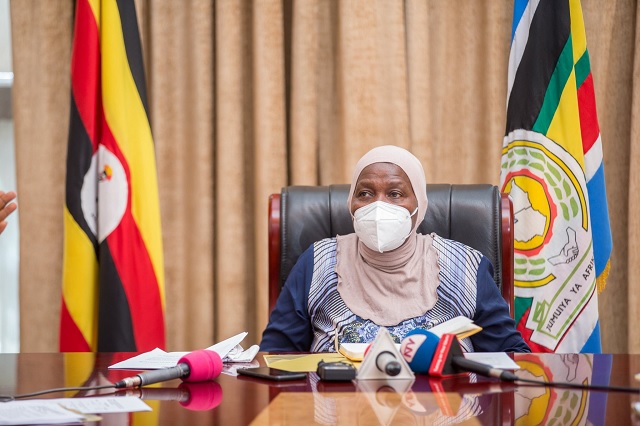
Kampala, Uganda | THE INDEPENDENT | The Minister for Kampala and Metropolitan Affairs, Minsa Kabanda has set allowances for speakers and their deputies at City Hall and the five divisions of Kampala. Just like their predecessors who were never paid, these political leaders have not received any pay since assuming office more than six months ago.
In her December 02, 2021 letter, Kabanda set the allowances for the Authority speaker at Shillings 14,758,000 and Deputy Speaker at Shillings 12,570,000, while the allowance for the division speakers is Shillings 10,740,000 and deputy division speakers Shillings 8,950,000.
“I would like to guide the implementation of this new structure of emoluments be urgently done to avoid unnecessary litigations,” said Kabanda in her letter to the KCCA Executive Director, Dorothy Kisaka.
This comes after the Ministry of Finance, Planning and Economic Development, and Public Service issued a certificate of financial implication to enable the minister to determine the emoluments for the political leaders.
It was during the amendment of the KCCA Act, 2020 that the offices of the Speaker, Deputy Speaker, and city executive committees were established. In early 2020, the offices were filled but a question emerged on whether they should earn a salary or extra allowances because of their new roles since they already were entitled to allowances as councillors.
At that time, the Solicitor General, Christopher Gashirabake guided that the executive secretaries and speakers are not new offices for purposes of remuneration because these are councilors appointed to the executive committee and division committees to discharge additional duties of the council.
Gashirabake said section 77 of the KCCA Act refers to specific offices, which would therefore require an amendment of the law before the same section is used to determine remuneration for the executive committees.
Section 77 states that the minister shall in consultation with the minister responsible for finance and the minister responsible for public service, determine the remuneration payable to the Lord Mayor, Deputy Lord Mayor and councilors of the Authority and the mayor, deputy mayor, chairperson, and councilors of a lower urban council.
The then Minister for Kampala, Betty Amongi presented before the cabinet three proposals; to pay the political leaders as councilors, have the minister use her powers under section 77 of the KCCA Act to set remuneration structures, or have the law amended to provide for setting remuneration structures for the political leaders.
She said the meeting had guided that she sets remuneration structures for executive committee members. Therefore in December 2020, Amongi approved extra allowances of Shillings 7,632,500 for the authority executive members and Shillings 4,925,000 for division executive members but non for the speakers.
On July 30th, 2021, the Kampala Lord Mayor Erias Lukwago wrote to the Minister for Kampala insisting that she uses section 77 of the KCCA Act to set a remuneration structure for the speakers and their deputies such that they are not left behind while executive secretaries are being paid.
“Government ought to have used the golden or purposive rule of interpretation in this matter. The KCCA Act expressly creates these offices and it’s not in dispute whether the office bearers should be remunerated or not,” opined Lukwago.
The Attorney General, Kiwanuka Kiryowa also offered his opinion in an August 27th, 2021 letter addressed to the minister. He opined that the opinion of the Lord Mayor was surely attractive to administrators of the law since it would enable the Minister to determine the remuneration for officers and ultimately have them paid without recourse to Parliament and the lengthy legislative process.
He however argued that previously, the government while dealing with tax legislation, would attempt to rectify obvious errors made by Parliament by issuing corrigenda but the practice was abandoned after courts stated that the responsibility to rectify errors in legislation is that of parliament and no other.
He therefore said it’s better for the gaps to be filled by the courts rather than by the administration. “Any interpretation given by an administrator especially in matters of a political nature is always problematic. Accordingly, my position is that it is better to amend the law to deal with the issue, and retroactively apply the law to all those who have occupied the offices since Act 1 of 2020 came into force,” said the Attorney General.
*****
URN
 The Independent Uganda: You get the Truth we Pay the Price
The Independent Uganda: You get the Truth we Pay the Price



